18 things to know before traveling to Morocco

Sep 5, 2024 • 7 min read

Get ready to weave your way through the markets and medinas of Morocco. Getty Images
I am originally from the UK and have been living in Morocco since 2018. There are things I wish I'd known before jumping headfirst into the seemingly lawless world of Moroccan taxis and bargaining in the souqs.
Morocco reveals the full spectrum of real life: the good, the bad, the ugly and the oh-so beautiful. For some visitors, Morocco can be a huge culture shock. But with some awareness and understanding, it is possible to appreciate these differences, connect more deeply and see the country through a different lens without trying to change it.

1. Plan your itinerary loosely and allow for changes
Research the places in Morocco you’d like to visit but leave wiggle room for changes along the way and enjoy the spontaneity that Morocco allows. While it’s possible to pre-book tours and activities, it’s usually just as easy to reserve them when you arrive in the country.
2. Take public transport, especially in cities
Driving in cities such as Casablanca and Marrakesh is best left to the locals. Getting around Morocco is easy, even without a car. An excellent train network links many cities, including Africa’s first high-speed train , Al Boraq, between Casablanca and Tangier . A comfortable and reliable bus network connects towns big and small. Book train and bus tickets a day or two in advance to ensure the travel time you'd like.

3. Book professional guides
To get the most out of your trip to Morocco, use a guide who has in-depth expertise and speaks your language. In cities, check with the local tourism office or your accommodations for recommendations for licensed guides in the area. If you’re surfing, check ISA’s directory of certified instructors .
Hiking guides are mandatory for climbing Mt Toubkal in the High Atlas. Check with Bureau des Guides .
4. Understand the written and unwritten rules of the road
In Morocco, you drive on the right side of the road and seatbelts are mandatory, even though some taxis don't have them. Car horns are used often – not in an aggressive way, but as a means of communication.
Watch out for people, bicycles, motorcycles and animals coming from all sides. Avoid driving at night because some vehicles do not have or use their headlights. Take notice of the speed limits and the roundabouts that have stoplight systems. If you’re stopped for speeding – police speed checks are common – or other penalties, having cash on you to pay fines – usually between Dh150 and Dh300 (US$15 to US$30) – is preferable to going to a local police station.
5. Cash or card?
The Moroccan dirham is a closed currency, which means you cannot use or get it outside the country. Morocco’s rural areas still operate on a cash economy, but cards are widely accepted in towns and cities.
6. Learn some of the lingo
A mixture of French, Arabic, Amazigh and English is spoken in Morocco, depending on where you are in the country. Don't expect everyone to speak English. Apps like Google Translate can be useful, but learning some basic Arabic phrases will reward you with feeling more connected and engaged with people you meet.

7. Practice the art of haggling
Haggling is a game and part of the shopping experience in Morocco . Try not to get frustrated – the ideal scenario is that both sides come away feeling like they got a fair price.
For big purchases, do your research, have a price in mind or shop around until you do. Sometimes vendors say to pay what you feel like, so if you don't have a price, ask some questions: how many hours did it take to make? Where did the materials come from and at what price?
Souqs are filled with fake tennis shoes, which are just that: fakes. Many Moroccans don't care whether their Nikes are original; they just want the best price for the latest styles.
8. Respect the motto of "God, king and country"
These words are etched on hills around the country. Islam is the state religion, and the rules of Islam are applied to personal matters in the same way that state law works in other countries. It is illegal to speak disrespectfully about religion or the king. Non-Muslims are not permitted to enter mosques or cemeteries, except the Hassan II Mosque in Casablanca . Friday is a holy day across the country, and most people take a few hours off in the afternoon to go to the mosque and eat couscous with their families afterward. Check business opening times before you visit if you're heading to a particular place on a Friday.
The holy month of Ramadan and the celebrations of Eid offer a different cultural experience, and during these times many places will be closed.
9. Things to know before going to Marrakesh
Marrakesh is the most popular city in Morocco for visitors, so pre-book entrance tickets to major attractions such as Jardin Majorelle and Musée Yves Saint Laurent online to avoid waiting in line. The Marrakesh medina comes to life around 5 pm, but the "pink city" is more than just the medina – spend time exploring Gueliz and step off the main boulevards onto the leafy side streets to discover pretty street cafes, bistro restaurants and small indie boutiques.

10. The dress code depends on where you are
To visit the Hassan II Mosque and other religious sites, visitors – both men and women – must cover to their shoulders and knees. Dress modestly in cities and towns to avoid unwanted attention. At bars and nightclubs, almost anything goes, but in rural areas, cover up and be respectful of the local customs.
At the beach, you can wear shorts, dresses, vest tops and swimwear including bikinis. Pack comfortable footwear that’s suitable for uneven roads and a scarf to cover your shoulders.
11. Ask before taking photos of people
No matter where you are in the world, it’s best to ask permission before taking someone’s photo. Many people are fine with it, but others aren’t. Some may ask for money. Do not take photos of military or government buildings. Drones are not allowed in Morocco without special permission.
12. Learn how to deal with the hassle
Simply ignore people who offer goods that you do not want. There's no need to be polite to everyone who wants to sell you something. By not reacting, they'll get bored and walk away.
In some places you may receive comments and, at worst, inappropriate behavior, but shouting "Police!" will send these people away. In Marrakesh, there's also a high chance you will alert the undercover tourist police.

13. Can you drink alcohol in Morocco?
Even though alcohol is forbidden by Islamic law, it is widely available and sold in licensed wine shops and international grocery stores. Not all bars and restaurants serve alcohol.
14. Eat with your right hand
Moroccan cuisine such as tagines and grilled fish are traditionally eaten with bread using your right hand. The left hand is considered unclean because it’s typically the hand used when going to the toilet.
15. It’s okay to get lost
Getting lost is part of the joy of exploring Morocco with its unmarked roads, the maze of souq alleys and areas of no cell phone reception. Relax but be aware of your surroundings and ask for help if you need it.
In medinas, it’s helpful to know that if the street sign is a hexagon, it's a dead end. If it’s a square, it’s a through street.
16. Don’t drink the tap water
Morocco’s tap water is not safe to drink. Bring a water bottle with a filter to avoid buying plastic.
17. Bring tissues for public toilets
Some public toilets do not have toilet paper. Unless you are comfortable using water to clean yourself, keep a pack of tissues and some anti-bacterial hand gel or wipes on you.
18. Street cats and dogs are everywhere and part of the community
It’s best not to feed street animals from your table because they might not leave, but you can keep leftovers and feed them elsewhere on the street. If you're an animal lover, find out if there is a rescue center where you're staying and show your support with a donation or by volunteering your time.
This article was first published Oct 15, 2023 and updated Sep 5, 2024.
Explore related stories

Tips & Advice
Sep 6, 2024 • 7 min read
Morocco is a country of dazzling diversity with mountains, deserts, beaches and ancient cities. Here are the best places to visit in Morocco.

Sep 4, 2024 • 14 min read

Aug 16, 2024 • 9 min read

Jun 26, 2024 • 6 min read

May 20, 2024 • 5 min read

Mar 11, 2024 • 5 min read

Feb 7, 2024 • 5 min read

Jan 31, 2024 • 6 min read

Jan 17, 2024 • 8 min read

Jan 17, 2024 • 6 min read
25 Essential Morocco Travel Tips, What To Know Before You Go!

25 Essential Morocco Travel Tips for Your Morocco Private Tour
Planning a Morocco Private Tour or Family Vacation? Curious to know more about Morocco? Our 25 Essential Morocco Travel Tips and Information Guide will answer all of your questions. Morocco is culturally diverse. Visiting Morocco will guarantee an encounter with ancient historic traditions, customs, architecture, monuments and sites that have permeated Moroccan society for centuries. Morocco is home to 36 million people and primarily a homogenous country. The populous shares the Islamic faith yet given the country’s rich history and Jewish past remains open and unified. You can anticipate a unique Morocco tour and up an up close Morocco travel experience engaging with a people who are devout, generous, hospitable and kind.
Your Morocco travel experience would not be complete with out a reference guide to answer some of the most important questions and provide travel tips.
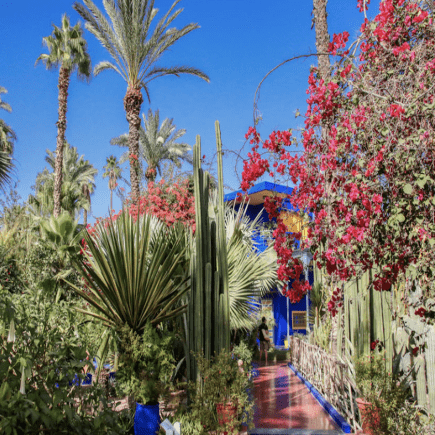
What is the Best Time to Travel to Morocco?
Morocco is situated on the far northwestern corner of Africa and has an expansive shoreline that stretches from the Atlantic Ocean to Gibraltar . The Best Time to Travel to Morocco should be ideally the considered by season. One of the best times to visit Morocco is spring or fall . Spring (April and May) and Fall (September and October) are perhaps the best overall time to take a Morocco Tour. Morocco has over 300 days of sunshine. During the peak summer months (June – Mid-September) it can get particularly hot. Temperatures in summer can reach as high as 120 degrees Fahrenheit. As a dry and temperate climate Morocco experiences very little humidity making the heat less intense. Moroccans typically take vacation time during summer months and typically head for the coast where it is cooler. Winters in Morocco (Mid-November – February) are typically mild and temperatures can reach down to 40 degrees Fahrenheit. In Morocco it often snows lighting during winter in some regions. The High Atlas region receives allot of snow therefore it is the perfect destination for skiing and enjoying other winter sports. Morocco has a summer climate in the south and in the mountains, as well as on the Mediterranean and Atlantic coasts. Winter can be perfect by day in the south, though desert nights can get very cold. If you’re planning to hike in the mountains, it’s best to keep to the months from April to October unless you have some experience in snow conditions.
What Languages are Spoken in Morocco?
Most Moroccans in the cities speak French as well as Arabic or the Moroccan dialect Darija. The French Protectorate was established in Morocco in 1912 and lasted until 1956. French remains the language of business whereas Darija is spoken in the street and at home, Darija itself is a mixture of languages including French words and Moroccans happily switch from one language to another in conversation. Spanish is spoken in the north and south, as there was also a Spanish protectorate. However there has been a marked increase in the number of young people speaking English as it is taught in schools. Those working in tourism will probably speak good English and the business centers of Casablanca and Tangiers also has more English speakers.
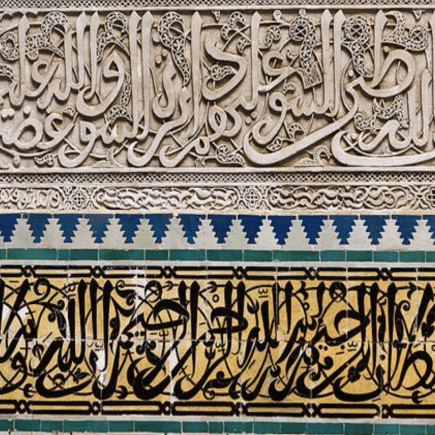
Morocco Travel Tips on Culture & Etiquette:
Moroccans in general are hospitable people. The Heritage of Moroccan people stemming from colonization and tourism has resulted in an open minded and easy going population. The country’s official religion and the majority of Moroccans are Muslims. The culture is made up of a combination of Berber and Arab, Moroccans who live peacefully together alongside a large expatriate population. The majority of Moroccan women wear a headscarf and very few wear a veil. It is recommended when traveling to Morocco to air on the conservative side and dress modestly. Wearing skimpy clothing, kissing and cuddling in public is not recommended and can be seen as a form of disrespect.
How should I Dress when traveling to Morocco:
Visitors to Morocco are often surprised about the range of ways that Moroccan women dress. Most dress modestly, in keeping with Islamic custom, many wearing the jellaba (a hooded, ankle length robe) and headscarf. In cities, many wear Western dress with or without a headscarf. You will see few burqas of the type associated with the Gulf region or Afghanistan. In order to avoid stares or unwanted attention, it is best for visitors also to dress modestly. Keep your swimwear for the beach and always cover at least your shoulders. Women will find their visit much more pleasant if they also avoid revealing necklines and cover up down to the knees. A scarf or pashmina is also handy for moments when you feel the need to conceal your head or shoulders from unwanted stares, the hot sun or over-zealous air conditioning. In the evenings in the winter months (and even more so in the mountains or the desert), sunny days become chilly nights and you will need to bring a sweater or even a jacket.
Travel Tips for Updating your Passport:
Make sure that as a traveler to Morocco you have a passport that will be valid for a further 6 months after you enter Morocco. We advise that you also carry an original or photocopy of your identification card or driver’s license. Passports can be renewed at your local consulate or passport office. For more information about travel tips on updating your passport to visit Morocco check with the Moroccan Embassy in your home city.
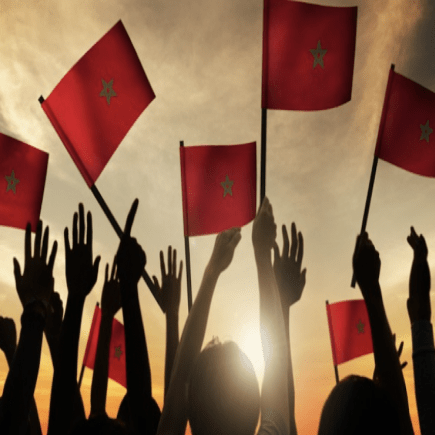
Morocco Travel Safety Tips:
Your national government will provide travel and security advice for visitors intending to visit Morocco. In general, the risk of international terrorism is no greater than in major cities of Europe or the US. Like in those cities, there is a risk of petty theft. Morocco is a developing country and the wealth gap between local people and tourists can drive a small minority to crime. Be sure to exercise the usual precautions on your visit regarding cash, jewelry and other valuables. Do not carry them around in large or visible quantities and make sure you are aware of the potential for pickpockets in crowds.
Overall, Morocco is one of the safest countries in Africa or the Middle East and North Africa region. You will be welcomed with a smile and great hospitality by virtual strangers. Enjoy your trip!
Morocco Travel Health Tips:
Morocco one of the few countries in Africa where it is not necessary to get vaccinations in order to travel. Nevertheless, if you have not received Typhoid or Hepatitis A shot in the past, it is advisable to get them. Please also inquire with your doctor to make sure you are up to date with your polio and tetanus vaccines. If you are from a country where cholera is prevalent, an anti- cholera vaccination certificate may be required. Morocco is a country where your health is not in danger when you travel. As long as you follow Morocco Travel Tips with regards to traveling safely in our About Morocco section the worst you can anticipate experiencing is an upset stomach or dryness, due to weather conditions, if you have sensitive skin.
Morocco Travel Tips on Gratuity:
Gratuity is a gift of money that is granted for service or a show of appreciate given without claim or demand. Gratuity is one of the best ways you can demonstrate appreciation for the services provided to others. Gratuity is part of Moroccan culture and appreciated by those providing a service. During a Morocco Tour what is generally recommended is to provide gratuity at restaurants, at Boutique Hotels and Riads, to drivers, licensed historical guides and also women servicing at public restrooms. It is a considerate way to thank those providing a service to you as a traveler. Our recommended gratuity is outlined below.
Restaurants : 15% of the Total Bill
Restrooms : 5 Dirham Coin (0.70 Cents)
Licensed Historical Guides : 50/ $60 Per Person/ Per Day
Drivers: $35-$40 Per Person/ Per Day
Morocco Private Tour Gratuity: The total gratuity offered to those hosting you on a private or group tour should be approximately 10% of the rate paid to your Morocco Travel Agency.
Where to I Exchange Money in Morocco?
Moroccan Dirhams are necessary to travel in Morocco. US Dollars and Euros are widely accepted in major hotels, but only very occasionally with shopkeepers. Otherwise, we recommended that you carry Moroccan Dirhams.
The Bureaux de Change can be found in most Moroccan banks, major hotels, airports, and ports. Most currencies are accepted, including US Dollars, Euros, and British Pounds, however others, including the Australian Dollar, are not accepted. Check with your consulate or local bank to see if your currency is accepted for exchange in Morocco.
ATM machines are the quickest and easiest way to obtain Moroccan Dirhams. ATM’s accept most major debit and credit cards. Depending on your bank, you may be able to withdraw up to 4,000 Dirhams (about $500 US Dollars) per day. Contact your bank for your daily withdrawal limits.
BMCE and Credit du Maroc (CDM) do offer cash advances on Visa and MasterCard, however this process may take several hours to complete and is also quite costly.
Exchange your cash when you arrive at the airport bank exchange, or use local banks and currency exchanges in the cities and medinas as you travel. The majority of cities have banks where you can obtain money 24 hours a day from your bankcard or credit card. Bank exchanges are also located near banks and most currencies are accepted with favorable exchange rates available. Use ATM machines at the airport and in metropolitan areas and medina’s, but they are rare in rural areas. When traveling outside of the cities be prepared to have enough cash, as ATM machines are not always an option.
What is the Water Situation in Morocco?
Drink only bottled water when in Morocco and avoid ice cubes made from tap water. Be sure to brush your teeth with bottled water, too.
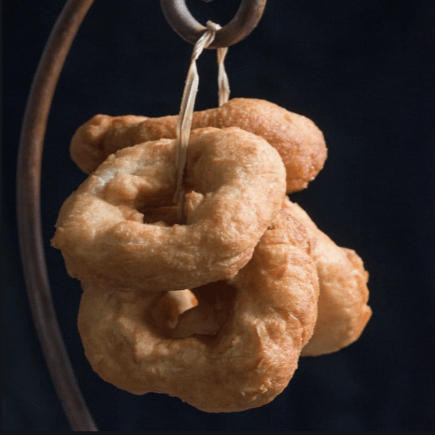
Can I Eat Street Food in Morocco?
Moroccan street food is safe to eat provided that the meat is fully cooked and vegetables and fruits are peeled. We particularly recommend discovering street food on a pre-arranged Moroccan Food Tour in Fes or Marrakech. This will enable you to enjoy local eats with little concern.
What Type of Internet Access in Morocco Should I Anticipate:
Internet access can be readily found at internet cafes and in hotel lobbies. Your riad and hotels will all have Wifi. Given you will most likely be staying in boutique properties that are restored palaces or villas during your trip you may find that Wifi is stronger in public areas. Occasionally, you can find free wi-fi in public places. While it is not easy to find internet access in rural areas, a smartphone with the proper plan will access the internet almost everywhere.
Morocco Travel Tips on Coverage of Mobile and Cell Phones:
Cell phone coverage is excellent in Moroccan metropolitan areas, with coverage in rural areas being more erratic. Check with your cell phone plan before you leave to make sure you have global coverage.
If you would like to enjoy using a Moroccan Mobile phone during your trip, then we recommend you purchase a cell phone SIM chip at the airport or request your driver take you to the local provider, Maroc Telecome. You will then be able to obtain a SIM chip for approximately $60 USA dollars and cards ranging from 100 MAD – 200 MAD ($12 – $25 of which will each provide you with approximately 10 + minutes of speaking time to the USA or other foreign countries.
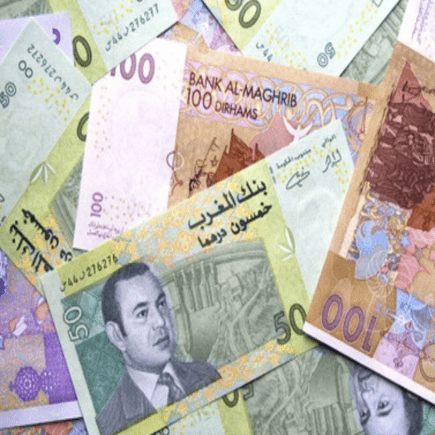
Morocco Travel Tips on Banks and Money Exchange:
The main banks in Morocco are Banque Marocaine du Commercial (BMCE), Banque Marocaine due Commerce et de L’Industrie (BMCI), Banque Commercial du Maroc (BCM), Banque Populaire, and Credit du Maroc (CDM).
Banking hours in Morocco are from 8:15am – 3:45pm, however during Ramadan the hours are reduced to 9:00am – 2:00pm.
Where and How to Exchange Currency in Morocco:
BMCE and Credit du Maroc (CDM) do offer cash advances on Visa and Mastercard, however this process may take several hours to complete and is also quite costly.
We recommend on arrival that you bring with you approximately $500 Per Person for meals, gratuity and incidentals. You can then continue to visit ATM machines for additional cash or use credit cards.
Will I have ATM Access in Morocco?
Use ATM machines at the airport and in metropolitan areas and medinas, but they are rare in rural areas. When traveling outside of the cities be prepared to have enough cash, as ATM machines are not always an option.
Can I Use Credit Cards in Morocco:?
Major credit cards are welcomed at the larger stores, hotels, and restaurants, but use cash at the smaller shops and stalls.
Master Card & Visa are widely accepted. American Express is accepted only at certain locations. We advise you to bring more than one credit card with you.
What are the Foods to Avoid when traveling to Morocco?
Do not drink the tap water while in Morocco and avoid ice cubes made from tap water. Be sure to brush your teeth with bottled water, too.
Morocco Travel Tips About Doctors:
You can find doctors in the major cities in both the public and private sector. Please consider acquiring traveler’s insurance for your trip if your regular health insurance does not cover you overseas. If you are traveling to Morocco on a Private Tour, then consult your travel agency as they will be able to offer a complete list of authorized and approved public and private hospitals.
What is the Climate in Morocco?
Morocco has a Mediterranean climate along the coast, with more extreme temperatures and weather in the mountains and desert. Temperatures are high in the summer, mild in the spring and fall, and cool in the winter.
Can I Take Photographs in Morocco?
Most Moroccan do not enjoy being photographed by strangers. Some have recognized that travelers like to capture the different, exotic and attractive aspects of Moroccan life on film and will sell the right to photograph them. It is your choice whether you go along with this. In any case, try to be discrete in your photography (a phone camera is much less obvious than a large SLR) and ask if you would like to take a direct portrait. Don’t be surprised if your request is refused, and if so, please respect this decision. At times people will request for a small fee such as 10 Moroccan Dirhams ($1.00) if you want an up close photograph. It is best to request permission before taking a photograph. Given Morocco is a moderate, Muslim country, women in particular within rural communities and many in cities do not like to be photographed. For the best results when traveling to Morocco whether you are a novice or a professional photographer it is best to ask your subject first or have your private guide assist.
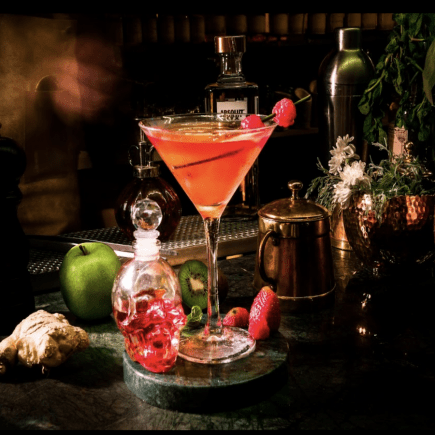
Can I Consume Alcohol in Morocco:
Alcohol in Morocco is available in the majority of touristic restaurants, at most boutique riads and hotels along with local bars. Wine and beer can be easily purchased at supermarkets and at several of the local wine markets in Morocco’s Imperial cities.
Although most Moroccans claim they do not drink alcohol due to religious prohibitions both locals and foreigners consume much of the country’s production of wine and beer. Morocco provides a home to groups of ex-patriots and foreigners from France, England, America, Spain, Germany and Italy who enjoy healthy alcohol consumption. The most popular beers made and consumed in Morocco are Casablanca and Special.
Morocco has been a leading wine producer for several years and its bold red and white grapes have become popular among the French, Americans and within Modern Moroccan households. When the French colonized Morocco, like the Romans centuries before them, they realized Morocco’s possibility of being a wine country. The French developed the Moroccan Imperial City of Meknès into a wine region. Today 30,000 acres of land in Morocco contribute to wine production and Morocco sells over 40 million bottles within Morocco and abroad. Moroccan wine is in a state of revival and wine producers are taking advantage of the country’s sunny, mild temperate climate, and high altitudes. Wine Tours are also available at designated wineries in the region of Meknes, Volubilis and Essaouira.
Morocco Travel Tips on Public Holidays:
Moroccans celebrate Muslim holidays and national holidays throughout the country, and more local festivals are held throughout the year in the Imperial Cities and small villages. The dates of religious holidays are based upon the lunar calendar and change every year. Plan your trip to Morocco during festivals and holidays for a real inside look into Moroccan daily life. Celebrations ranging from rural harvest feasts to music and film festivals in Morocco’s cultural centers demonstrate Morocco’s commitment to sustainable agricultural and artistic achievement. (Please note that the dates for Muslim holidays change annually as they are based on the lunar calendar. The following dates are accurate for 2019.)
- New Year’s Day is on Tuesday, January 01
- Independence Manifesto Day is on Friday, January 11
- Milad un Nabi is on Thursday, January 24
- Labor Day is on Wednesday, May 01
- Throne Day is on Tuesday, July 30
- Eid al-Fitr is on Thursday, August 08
- Oued Ed-Dahab Day is on Wednesday, August 14
- Revolution Day Morocco is on Tuesday, August 20
- King Mohammed IV’s Birthday is on Wednesday, August 21
- Eid al-Adha is on Tuesday, October 15
- Fatih Muharram (Islamic New Year) is on Monday, November 04
- Green March Day is on Wednesday, November 06
- Independence Day Morocco is on Monday, November 18
Morocco Travel Tips when Visiting During Ramadan:
Ramadan, considered as the most important holiday in Islam, happens on the ninth month of the twelve-month lunar calendar followed in Islam. During Ramadan all Muslims fast from sunrise to sunset for one month, only eating after sundown. Non-Muslims are not expected to observe Ramadan, but should be sensitive about not breaking the fast in public. As a Morocco Traveler it is important to respect those fasting and make best efforts to not eat in public places such as city and medina streets. Dining in touristic restaurants and those open to Westerners is advised. Drinking water and other beverages in public is also not advised for reasons of respect. If you are visiting Morocco during the summer, which is the warmest season, it is advised to make best efforts to drink water and beverages discretely.
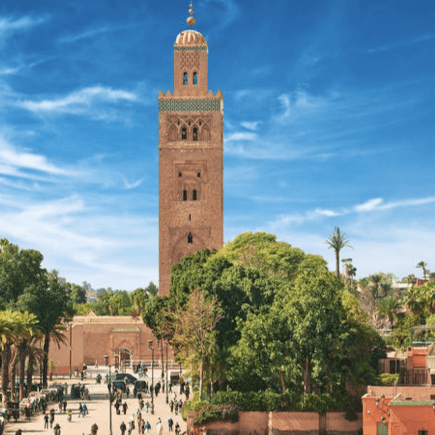
Can I Visit a Mosque in Morocco?
Mosques are closed to non-believers but you can visit the impressive Hassan II mosque in Casablanca, the Berber mosque at Tin Mel outside Marrakech on the way to Ouarzazate, the former Islamic college the Medersa Ben Youssef in the Marrakech Medina and the old Medersas in Fés Bali, the Bou Inania and the El Attarine. These sites will give you some idea of the glories of Moroccan Islamic architecture.
Morocco Travel Tips on Charity for Elderly & Children:
As a foreigner traveling in a Muslim country, following the five tenants of Islam- and offering a small amount of charity is an option but not required. If you wish to offer charity to an elderly person, to children or a poor person on the street that moves your heart, please consider the following:
Giving anywhere between15 -20 Dirhams ($2.00 – $2.50) is a considered gracious and will not place a dent in your wallet but perhaps leave you with an experience in your heart. Sometimes the reciprocity you may receive as a result of giving a small amount of charity in a Muslim country like Morocco comes in the form of a big smile, a hand shake, an invitation for tea or even a hug from the recipient.
Follow Travel Exploration Morocco for Travel Tips and Information about Visiting Morocco
45 Morocco Packing List Essentials: What to Bring
Agafay desert luxury glamping and lodge experience.
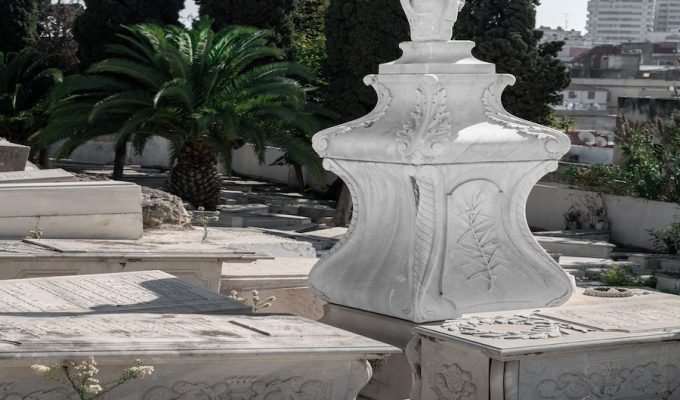
Unveiling Tangier’s Hidden Gems: Discovering the Jewish Heritage Sites
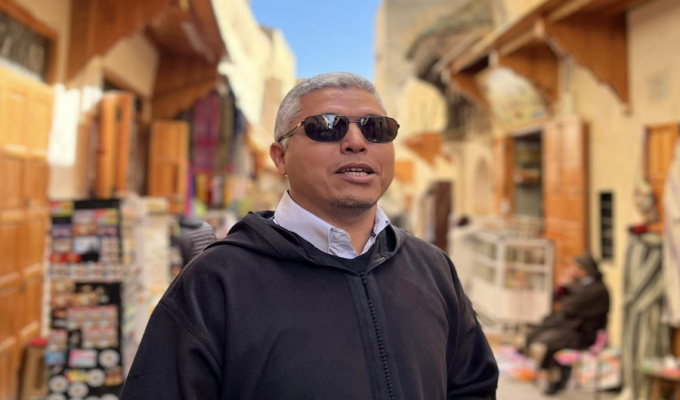
Top 5 Reasons to Discover Morocco on a Luxury Tour with Private Guides
The artists of essaouira and joutiya market.
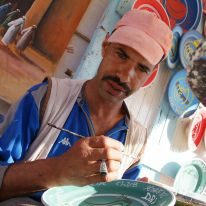
Safi Pottery – Travel to the Moroccan town of Safi

Morocco Family Vacation, Things to do

Shop the Souks of Morocco
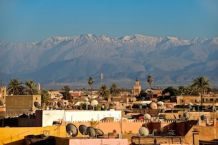
5 Signs You’ve Fallen in Love with Morocco
Essential Morocco Travel Tips for an Unforgettable Journey
Morocco is an incredible, exotic country that’s rich in history, culture, and natural beauty. From the busy cities to the vast deserts, Morocco offers you an unforgettable travel experience. It’s one of my favorite countries in the world!
But it’s also a country with its own unique customs and traditions. Some that are very different from what you may be used to if you’re visiting from a different culture.

In this article, we’ll provide you with some essential Morocco travel tips that will help make your trip go smoothly. How to interact with the locals, approach your first shopping experience, and even how to get around while you’re here. It’s the perfect pre-planning guide.
🔌 Electricity : Plug types C & E are common; voltage is 220V, 50Hz
💰 Currency : the Dirham; one dirham is made up of 100 santims
🌦️ Best times to Go: Spring (April & May) and Autumn (September & October)
🗣️ Official Languages : Moroccan Arabic and Amazigh; most also speak French; Spanish is common in Northern and Southern Morocco
General Morocco Travel Tips
1. respect local customs:.

When traveling to Morocco , it’s important to keep in mind that the country is predominantly Muslim, and modesty is highly valued in Islamic culture. (Muslim people follow the religion of Islam).
➣ Modesty in how you dress is important . This is especially true in rural areas and around religious sites. And if you’re in a super conservative spot like a mosque, it’s a good idea to add an extra layer. Women, think about wearing a headscarf. You might consider just carrying a scarf around with you, in case you end up somewhere where you need a little extra cover.
➣ This applies to both sexes. Men and women should both steer clear of clothing that’s too revealing, like shorts, tank tops, or tight clothes. When you’re exploring religious spots, remember to cover your shoulders and knees, and ladies will want to cover their arms and legs too.
➣ It’s a hot and humid climate . Loose-fitting things like knee-length skirts and dresses, or loose pants are good choices. Dress for men is more relaxed, but you’re best opting for long pants and shirts with sleeves.
➣ Beaches and surf spots along the coast tend to be more relaxed, but if in doubt, err on the side of modesty.
Related read: Morocco road trip along the Atlantic coast

2. Learn Basic Arabic Phrases

Locals appreciate visitors who make an effort to speak their language. Learn a few common greetings and polite expressions in Moroccan Arabic . The Atlas Cultural Foundation has a good online phrasebook. Here are a few to try:
➣ Salam alaikum (sah-lahm ah-lay-koom): This is the most common greeting in Morocco, and it means “peace be upon you.” The response is wa alaikum salam (wah ah-lay-koom sah-lahm), which means “and peace be upon you.”
➣ Sabah el-kheir (sah-bah el-khayr): This is a morning greeting that means “good morning.”
➣ Masa el-kheir (mah-sah el-khayr): This is an afternoon/evening greeting that means “good afternoon” or “good evening.”
➣ Shukran (shoo-krahn): This means “thank you.”
➣ Afak (ah-fak): This means “please” or “you’re welcome.”
➣ La shukran (lah shoo-krahn): This means “no thank you.”
➣ Bslama (bis-lah-mah): This is a farewell expression that means “go in peace.”
3. Bargain Wisely

Haggling is a common, even expected practice in the souks of the marketplaces. It is a negotiation process between the buyer and the seller to agree on a price that is acceptable to both of you. Here are some tips that can help you haggle effectively:
➣ Research : If you’re nervous, do a little research on things you might want to buy before you head out to the souks. You’ll get an idea of what things are going for elsewhere and help you set a realistic target price.
➣ Start low : Start with a lower price than what you are willing to pay. This will give you room to negotiate and increase your chances of getting a better deal.
➣ Be patient : Haggling can take time, so be patient. Don’t rush the process, and be prepared to walk away if you can’t reach an agreement.
➣ Maintain a friendly attitude : Be polite and respectful throughout the negotiation process, but try to also relax and have fun with it. A friendly attitude can go a long way in building rapport with the seller and increasing your chances of getting a good deal.
➣ Know when to stop : It’s important to know when to stop haggling. If you’ve reached your target price, or if the seller is not willing to negotiate any further, it’s time to stop.
Haggling is all part of the fun of being in Morocco. It’s a negotiation process, and it’s important to approach it with a positive attitude. Be sure to maintain a friendly and respectful attitude towards the seller.
4. Carry Cash

It’s common for many places, especially in rural areas, to not accept cards. It’s a good idea to carry enough cash for small purchases and tips. A few more things to consider:
➣ Research : Before you travel, research the exchange rate. This will give you an idea of how much cash you need to carry.
➣ ATMs : ATMs are widely available in cities and towns in Morocco. You can use your debit or credit card to withdraw cash from ATMs. But it’s important to note that some ATMs may not accept foreign cards, so be sure to check with your bank before you travel.
➣ Cash exchange : You can exchange your currency for Moroccan Dirham at banks, exchange bureaus, and hotels. Exchange bureaus usually offer better rates than banks and hotels, though.
➣ Carry small denominations : It’s a good idea to carry small denominations of cash, as many vendors may not have change for larger bills. You’ll need it for tips, as well.
➣ Safety : It’s important to keep your cash safe while traveling. Don’t carry large amounts of cash in one place. Keep some in a secure place like a money belt or a hidden pocket.
5. Respect Ramadan Customs

If you’re traveling during Ramadan – the start time is different each year – it’s important to be mindful of the fasting hours. During the holy month of Ramadan, Muslims fast from dawn to dusk, which means they refrain from eating, drinking, or smoking in public during daylight hours.
Here are some Morocco travel tips that can help you during Ramadan:
➣ Be respectfu l: It’s important to show respect for the local customs and traditions during Ramadan. Refrain from eating, drinking, or smoking in public during daylight hours, and dress modestly. Plan ahead and be prepared to have your meals in your room or away from people during the day.
➣ Be patient : Ramadan is a time of spiritual reflection and self-discipline. It’s important to be patient and understanding during this time when you’re traveling in Morocco.
➣ Be flexible : If you are traveling in Morocco during Ramadan, flexibility is important. Many restaurants and cafes may be closed during the day, and the streets may be quieter than usual. But, there are still plenty of things to see and do during Ramadan.
Ramadan is a great time to explore Morocco. You get to experience this important cultural tradition in person, and get a feel for the people and what’s important to them.
Safety Tips
6. dress modestly.

As mentioned, it’s important to dress carefully out of respect for the culture. But modest clothing can also help avoid unwanted attention. Women who dress modestly are less likely to be harassed or approached by men, which can help you feel safer while traveling.
You’ll want to dress in lightweight and breathable fabrics, especially during the summer months, to stay comfortable in the hot weather.
7. Secure Your Belongings

Petty theft can happen in Morocco, particularly in crowded areas. Here are a few Morocco travel tips to help you hold onto your belongings while traveling in Morocco.
➣ Again, avoid carrying large amounts of cash . Keep most of what you have in something like a money belt or hidden pocket.
➣ Use a cross-body bag : They’re more difficult to grab than shoulder bags or backpacks. Keep the bag in front of you and keep an eye on it.
➣ Be aware of your surroundings : Stay alert and aware of who and what’s around you at all times. This will become second nature before too long. Also avoid walking alone at night, especially in poorly lit areas.
➣ Keep important things out of sight : Leave the valuables at home. Keep your phone, camera, and other electronics tucked away when not in use.
8. Avoid Isolated Areas at Night

Stay in well-lit, populated areas at night to stay safe, especially if you are traveling solo. Take a taxi door to door if you have somewhere to go after dark. Know what areas and neighborhoods you should stay out of outside daylight hours.
Cultural Etiquette
9. greet with your right hand.

When shaking hands or giving/receiving something, always use your right hand, as the left hand is considered impolite.
In Moroccan culture, greetings are an important part of social interaction. When you greet someone, offer your right hand to shake. After shaking hands with an elder or a child, you may then touch your right hand to your heart in respect.
If either of you has a full or dirty right hand, the other person might grip the right wrist instead of the hand.
10. Accept Invitations

If you’re lucky enough to be invited into someone’s home, accept graciously. It’s an honor and a gesture of hospitality. Refusal is rude.
➣ It’s polite to bring a little something, like flowers or a small box of sweets. It’s a nice way to show your appreciation for their generosity.
➣ Make it a point to dress modestly, and If you’re female, be sure to cover your head. You’ll need to remove your shoes outside the door of the house.
➣ Make sure to greet each person in the room with a smile, and shake each person’s hand.
➣ It’s likely that you’ll be offered a glass of tea, and it’s good manners to accept.
11. Ask Permission for Photos

When taking photos of locals in Morocco, it’s important to show your respect by asking your subject for consent first. This can be done through a polite gesture, a smile, and showing your camera.
One of the few basic phrases in Moroccan Arabic ( Wash momkin nswr? ) or French you might learn is “Can I take a picture?”
If locals refuse, respect their wishes and move on. Avoid taking sneaky shots as they can make people uncomfortable and cause conflicts.
This really is a good idea wherever you’re traveling.
Read also: 30 Destinations in Africa you should visit
Transportation Tips
12. getting around morocco.

➣ Walk when you can. To really soak up the Moroccan atmosphere, there’s nothing like walking through the busy streets. And especially in cities like Marrakech and Fez, it’s more practical to explore the Medina on foot.
➣ Always keep a map handy , a paper one or a map app on your phone. Be ready to get a little lost – it’s a great way to discover unexpected and interesting places. A map app will get you right on track again, so no worries.
➣ Always carry the address of your accommodation with you, in Arabic and/or French if you can. A business card is perfect. Then if you’re quite hopelessly lost or it starts to get dark, you can just hop in a taxi.

➣ Take the train. Consider the excellent rail network for longer distances. I love the train system in Morocco. It’s not only efficient, reliable, and comfortable, but also offers a great chance to soak in the country’s scenic beauty.
➣ Hop on a bus. If you’re traveling between cities, buses are an economical option. Companies like CTM and Supratours are comfortable. Just be sure you book your tickets in advance.
➣ Wait to speak till spoken to: It’s not a habit in Morocco for strangers to engage in conversation on public transportation. It’s best to respect people’s privacy and personal space. If someone initiates a conversation with you, feel free to respond politely. And if you are eating a snack, it’s rude not to offer some to others around you.
* In Moroccan culture, showing the soles of your feet is considered disrespectful. Keep this in mind when sitting on public transportation, or anywhere else.
➣ Trade two legs for 4. If you’re in the Sahara or Agafay Deserts , ride a camel! Not usually an option around cities, but if you get the chance, take it! It’s an unforgettable Moroccan experience that you shouldn’t miss. A day trip in Agafay is epic.
Understand Local Traffic

13. Road rules may be different than you’re used to
Pedestrians should be extra cautious when walking in Moroccan cities and towns. Traffic can be chaotic, unpredictable, and fast, with cars, buses, and mopeds weaving in and out of traffic.
Pedestrian crossings are rarely respected, especially in larger cities, so it’s important to be very careful when crossing the road. In smaller places, it’s also important to be aware of other hazards such as bicycles, donkeys, and camels that may be sharing the road with you.
Food and Dining
14. expand your palate.
There is a lot of delicious food to try throughout Morocco. The blends of spices are unique, and you may see ingredients you never expected. That’s part of the fun, too!
➣ Try local cuisine : Moroccan cuisine is a blend of Berber, Arabic, and Mediterranean influences. It’s known for its bold flavors, spices, and herbs. Be sure to include some simple dishes like tagine and couscous. But stay away from raw seafood, and make sure all meat is cooked through.

➣ Eat where the locals eat : Look for places that are crowded with locals. They are likely to serve authentic and delicious food. Street food is a great option when sampling local delicacies.
➣ Use bread as silverware : In Morocco, it’s common not to use silverware. Meals are eaten communally from a large dish – not on individual plates. You’ll use bread as silverware, not a fork or spoon. This is all a part of the fun – do as the locals do!
➣ Be aware of dietary restrictions : As anywhere, if you have any dietary restrictions, it’s best to inform the restaurant staff beforehand. Options like halal, vegetarian, and vegan dishes are usually easy to find.
➣ Be prepared to see a lot of mint tea : It’s a popular drink in Morocco and is served throughout the day. It’s a symbol of hospitality.
15. Be mindful of hygiene

When it comes to street food and food stalls, choose the cleanest-looking ones. Always avoid eating salads, fruits, and vegetables that may have been washed in tap water. This goes for ice cubes too. The tap water is not safe to drink .
You should also carry toilet paper with you whenever you’re out exploring. Public bathrooms aren’t common, so if you stop at a cafe for lunch, be sure to use their facilities. And chances are high that there will be no toilet paper. Expect to see squat toilets, too.
16. Respect Dining Etiquette

When invited to someone’s home, always wait to be seated, and eat with your right hand. It’s polite to finish all the food on your plate, too. Also:
➣ Dressing modestly applies to dining occasions as well. When dining in more formal settings, try to dress up a bit. Men often wear suits or traditional Moroccan attire, while women opt for conservative and stylish outfits.
➣ Greet your host : In Morocco, hospitality is deeply ingrained in the culture. Greetings play an important role in establishing a warm and welcoming atmosphere. When entering a restaurant or someone’s home, greet your host with a sincere “As-salamu alaykum” (peace be upon you).
➣ Wait to be told where you should sit : Moroccan dining often involves seating arrangements that reflect social hierarchies and customs. The host takes the seat of honor, often at the head of the table. Guests are seated based on their age, status, or relationship with the host.

➣ Use your right hand here too : When it comes to eating in Morocco, using your hands is common. Moroccans traditionally eat with their right hand, using the thumb and first two fingers to pick up food.
This method is especially followed while enjoying traditional dishes like couscous or tagine. But at a more formal meal, you might see cutlery at the table. If you do, it’s polite to use them.
Accommodation
17. choose the best stay for your needs.

There are a few things to keep in mind when arranging where you’re going to stay while you’re here:
➣ Choose the right location : Morocco has a good variety of accommodation options, ranging from luxury hotels to budget-friendly hostels. You’ll be able to choose your location based on what you want to see. For example, the Medina area is a good choice if you want to explore traditional Marrakech.
➣ Book in advance : Morocco is a popular destination, and accommodation can fill up quickly, especially during peak season. (March through May and September/October are the busiest times).

➣ Consider the style of accommodation : Morocco has a rich cultural heritage, and this is reflected in the architecture and design of its accommodation options. I highly recommend you spend some time at a traditional riad. You might also want to do some camping in the desert and experience some of the local modern hotels.
➣ Read reviews : Before booking your stay, read reviews from other travelers. They’re a good, easy way to get an idea of the quality of service and amenities offered by the accommodation.
Health and Hygiene
18. visit your doctor or travel clinic:.

Do this at least 6 weeks before you leave on your trip. This will allow time for any vaccinations or medications that they might recommend to take effect. At the very least, always be sure that your routine inoculations are up-to-date. Also, discuss antimalarial options.
19. Remember your hand hygiene:

This isn’t just about avoiding Covid. It will help you stay healthy, which goes a long way toward making sure you have a great trip. Wash your hands or use an alcohol-based sanitizer frequently.
20. Don’t drink the water:

Buy bottled water, boil water, or use another method of purifying your drinking water . This means avoiding any tap water, fountain drinks, ice cubes, and fruits and vegetables that might have been washed in tap water.
21. Beware of little critters:

There is a risk of mosquito-borne illnesses in Morocco. Avoid getting bit by wearing light-colored clothing that covers you up and using insect repellent. Screened rooms are also important.
As well, parasites and bacteria can be found in freshwater here. Be careful when swimming, and do a little research on a spot before you dive in.
Local Customs:
22. participate in tea rituals:.

If you’re invited for tea while visiting Morocco, always accept. Tea is a symbol of hospitality and respect. It’s customary to have several rounds during a visit, and the ceremony can last as long as an hour.
➣ Mint tea is very common in Morocco, and very delicious. It’s the custom to pour the tea from high above the glass to create a froth. Hold the tea glass by placing your middle finger on the bottom of the glass and your thumb on the top rim to avoid getting burned.
➣ The tea is most often served along with cookies or some other sweet.
➣ Traditionally, you will drink three glasses of tea. The first is said to be as bitter as life, the second as strong as love, and the third as sweet as death.
23. Respect Friday Prayer Time:

Businesses and restaurants may close on Fridays. This is an important day for Muslim people, who typically spend the day feasting with family. Plan ahead by picking up whatever you will need for Friday’s meals and snacks on Thursday, along with anything else you might need.
Communication:
24. use polite titles:.
When you meet someone familiar or pass them on the street, it’s impolite to just say “hi” and keep walking. Stop to shake hands and ask them how they’re doing. Also, when addressing someone use titles like Mr. or Mrs. followed by their last name as a sign of respect.
25. Get a local SIM

For long-distance communication, pick up a local SIM card. It’s an easy and affordable way to stay connected while you’re traveling in Morocco. You can buy a SIM card at the airport or in many places around the cities. The two main providers are Maroc Telecom and Orange.
In Summary – Morocco Travel Tips
Morocco is a beautiful, exotic country with a fascinating culture and history. It’s a destination with many different faces, from the lively cities to the tranquil desert. With the right preparation and knowledge, you’ll have an unforgettable experience in Morocco
Remember to pack light, dress appropriately, and use your bug spray. Don’t forget to try the local cuisine and immerse yourself in the vibrant culture! I hope these travel tips have been helpful in planning your trip to Morocco.
Keep reading: Best things to do in Morocco

– Contributed by Deb Hendricks

You are using an outdated browser. Upgrade your browser today or install Google Chrome Frame to better experience this site.
Morocco Traveler View
Travel health notices, vaccines and medicines, non-vaccine-preventable diseases, stay healthy and safe.
- Packing List
After Your Trip
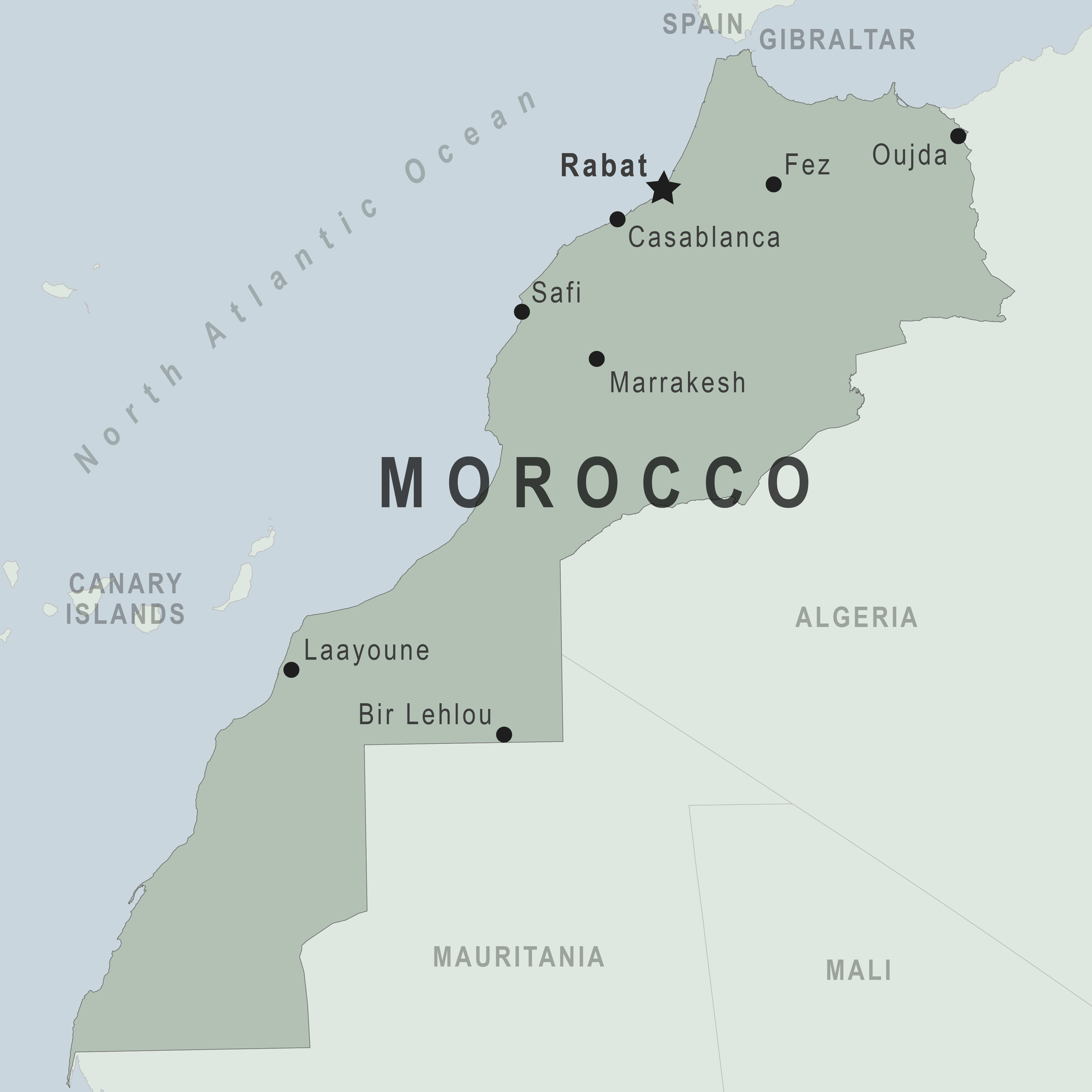
There are no notices currently in effect for Morocco.
⇧ Top
Check the vaccines and medicines list and visit your doctor at least a month before your trip to get vaccines or medicines you may need. If you or your doctor need help finding a location that provides certain vaccines or medicines, visit the Find a Clinic page.
- Avoid contaminated water
Leptospirosis
How most people get sick (most common modes of transmission)
- Touching urine or other body fluids from an animal infected with leptospirosis
- Swimming or wading in urine-contaminated fresh water, or contact with urine-contaminated mud
- Drinking water or eating food contaminated with animal urine
- Avoid contaminated water and soil
- Avoid floodwater
Clinical Guidance
Schistosomiasis
- Wading, swimming, bathing, or washing in contaminated freshwater streams, rivers, ponds, lakes, or untreated pools.
Avoid bug bites
Leishmaniasis
- Sand fly bite
- Avoid Bug Bites
Airborne & droplet
- Breathing in air or accidentally eating food contaminated with the urine, droppings, or saliva of infected rodents
- Bite from an infected rodent
- Less commonly, being around someone sick with hantavirus (only occurs with Andes virus)
- Avoid rodents and areas where they live
- Avoid sick people
Tuberculosis (TB)
- Breathe in TB bacteria that is in the air from an infected and contagious person coughing, speaking, or singing.
Learn actions you can take to stay healthy and safe on your trip. Vaccines cannot protect you from many diseases in Morocco, so your behaviors are important.
Eat and drink safely
Food and water standards around the world vary based on the destination. Standards may also differ within a country and risk may change depending on activity type (e.g., hiking versus business trip). You can learn more about safe food and drink choices when traveling by accessing the resources below.
- Choose Safe Food and Drinks When Traveling
- Water Treatment Options When Hiking, Camping or Traveling
- Global Water, Sanitation and Hygiene (WASH)
- Avoid Contaminated Water During Travel
You can also visit the Department of State Country Information Pages for additional information about food and water safety.
Prevent bug bites
Bugs (like mosquitoes, ticks, and fleas) can spread a number of diseases in Morocco. Many of these diseases cannot be prevented with a vaccine or medicine. You can reduce your risk by taking steps to prevent bug bites.
What can I do to prevent bug bites?
- Cover exposed skin by wearing long-sleeved shirts, long pants, and hats.
- Use an appropriate insect repellent (see below).
- Use permethrin-treated clothing and gear (such as boots, pants, socks, and tents). Do not use permethrin directly on skin.
- Stay and sleep in air-conditioned or screened rooms.
- Use a bed net if the area where you are sleeping is exposed to the outdoors.
What type of insect repellent should I use?
- FOR PROTECTION AGAINST TICKS AND MOSQUITOES: Use a repellent that contains 20% or more DEET for protection that lasts up to several hours.
- Picaridin (also known as KBR 3023, Bayrepel, and icaridin)
- Oil of lemon eucalyptus (OLE) or para-menthane-diol (PMD)
- 2-undecanone
- Always use insect repellent as directed.
What should I do if I am bitten by bugs?
- Avoid scratching bug bites, and apply hydrocortisone cream or calamine lotion to reduce the itching.
- Check your entire body for ticks after outdoor activity. Be sure to remove ticks properly.
What can I do to avoid bed bugs?
Although bed bugs do not carry disease, they are an annoyance. See our information page about avoiding bug bites for some easy tips to avoid them. For more information on bed bugs, see Bed Bugs .
For more detailed information on avoiding bug bites, see Avoid Bug Bites .
Stay safe outdoors
If your travel plans in Morocco include outdoor activities, take these steps to stay safe and healthy during your trip.
- Stay alert to changing weather conditions and adjust your plans if conditions become unsafe.
- Prepare for activities by wearing the right clothes and packing protective items, such as bug spray, sunscreen, and a basic first aid kit.
- Consider learning basic first aid and CPR before travel. Bring a travel health kit with items appropriate for your activities.
- If you are outside for many hours in heat, eat salty snacks and drink water to stay hydrated and replace salt lost through sweating.
- Protect yourself from UV radiation : use sunscreen with an SPF of at least 15, wear protective clothing, and seek shade during the hottest time of day (10 a.m.–4 p.m.).
- Be especially careful during summer months and at high elevation. Because sunlight reflects off snow, sand, and water, sun exposure may be increased during activities like skiing, swimming, and sailing.
- Very cold temperatures can be dangerous. Dress in layers and cover heads, hands, and feet properly if you are visiting a cold location.
Stay safe around water
- Swim only in designated swimming areas. Obey lifeguards and warning flags on beaches.
- Practice safe boating—follow all boating safety laws, do not drink alcohol if driving a boat, and always wear a life jacket.
- Do not dive into shallow water.
- Do not swim in freshwater in developing areas or where sanitation is poor.
- Avoid swallowing water when swimming. Untreated water can carry germs that make you sick.
- To prevent infections, wear shoes on beaches where there may be animal waste.
Schistosomiasis, a parasitic infection that can be spread in fresh water, is found in Morocco. Avoid swimming in fresh, unchlorinated water, such as lakes, ponds, or rivers.
Keep away from animals
Most animals avoid people, but they may attack if they feel threatened, are protecting their young or territory, or if they are injured or ill. Animal bites and scratches can lead to serious diseases such as rabies.
Follow these tips to protect yourself:
- Do not touch or feed any animals you do not know.
- Do not allow animals to lick open wounds, and do not get animal saliva in your eyes or mouth.
- Avoid rodents and their urine and feces.
- Traveling pets should be supervised closely and not allowed to come in contact with local animals.
- If you wake in a room with a bat, seek medical care immediately. Bat bites may be hard to see.
All animals can pose a threat, but be extra careful around dogs, bats, monkeys, sea animals such as jellyfish, and snakes. If you are bitten or scratched by an animal, immediately:
- Wash the wound with soap and clean water.
- Go to a doctor right away.
- Tell your doctor about your injury when you get back to the United States.
Consider buying medical evacuation insurance. Rabies is a deadly disease that must be treated quickly, and treatment may not be available in some countries.
Reduce your exposure to germs
Follow these tips to avoid getting sick or spreading illness to others while traveling:
- Wash your hands often, especially before eating.
- If soap and water aren’t available, clean hands with hand sanitizer (containing at least 60% alcohol).
- Don’t touch your eyes, nose, or mouth. If you need to touch your face, make sure your hands are clean.
- Cover your mouth and nose with a tissue or your sleeve (not your hands) when coughing or sneezing.
- Try to avoid contact with people who are sick.
- If you are sick, stay home or in your hotel room, unless you need medical care.
Avoid sharing body fluids
Diseases can be spread through body fluids, such as saliva, blood, vomit, and semen.
Protect yourself:
- Use latex condoms correctly.
- Do not inject drugs.
- Limit alcohol consumption. People take more risks when intoxicated.
- Do not share needles or any devices that can break the skin. That includes needles for tattoos, piercings, and acupuncture.
- If you receive medical or dental care, make sure the equipment is disinfected or sanitized.
Know how to get medical care while traveling
Plan for how you will get health care during your trip, should the need arise:
- Carry a list of local doctors and hospitals at your destination.
- Review your health insurance plan to determine what medical services it would cover during your trip. Consider purchasing travel health and medical evacuation insurance.
- Carry a card that identifies, in the local language, your blood type, chronic conditions or serious allergies, and the generic names of any medications you take.
- Some prescription drugs may be illegal in other countries. Call Morocco’s embassy to verify that all of your prescription(s) are legal to bring with you.
- Bring all the medicines (including over-the-counter medicines) you think you might need during your trip, including extra in case of travel delays. Ask your doctor to help you get prescriptions filled early if you need to.
Many foreign hospitals and clinics are accredited by the Joint Commission International. A list of accredited facilities is available at their website ( www.jointcommissioninternational.org ).
In some countries, medicine (prescription and over-the-counter) may be substandard or counterfeit. Bring the medicines you will need from the United States to avoid having to buy them at your destination.
Select safe transportation
Motor vehicle crashes are the #1 killer of healthy US citizens in foreign countries.
In many places cars, buses, large trucks, rickshaws, bikes, people on foot, and even animals share the same lanes of traffic, increasing the risk for crashes.
Be smart when you are traveling on foot.
- Use sidewalks and marked crosswalks.
- Pay attention to the traffic around you, especially in crowded areas.
- Remember, people on foot do not always have the right of way in other countries.
Riding/Driving
Choose a safe vehicle.
- Choose official taxis or public transportation, such as trains and buses.
- Ride only in cars that have seatbelts.
- Avoid overcrowded, overloaded, top-heavy buses and minivans.
- Avoid riding on motorcycles or motorbikes, especially motorbike taxis. (Many crashes are caused by inexperienced motorbike drivers.)
- Choose newer vehicles—they may have more safety features, such as airbags, and be more reliable.
- Choose larger vehicles, which may provide more protection in crashes.
Think about the driver.
- Do not drive after drinking alcohol or ride with someone who has been drinking.
- Consider hiring a licensed, trained driver familiar with the area.
- Arrange payment before departing.
Follow basic safety tips.
- Wear a seatbelt at all times.
- Sit in the back seat of cars and taxis.
- When on motorbikes or bicycles, always wear a helmet. (Bring a helmet from home, if needed.)
- Avoid driving at night; street lighting in certain parts of Morocco may be poor.
- Do not use a cell phone or text while driving (illegal in many countries).
- Travel during daylight hours only, especially in rural areas.
- If you choose to drive a vehicle in Morocco, learn the local traffic laws and have the proper paperwork.
- Get any driving permits and insurance you may need. Get an International Driving Permit (IDP). Carry the IDP and a US-issued driver's license at all times.
- Check with your auto insurance policy's international coverage, and get more coverage if needed. Make sure you have liability insurance.
- Avoid using local, unscheduled aircraft.
- If possible, fly on larger planes (more than 30 seats); larger airplanes are more likely to have regular safety inspections.
- Try to schedule flights during daylight hours and in good weather.
Medical Evacuation Insurance
If you are seriously injured, emergency care may not be available or may not meet US standards. Trauma care centers are uncommon outside urban areas. Having medical evacuation insurance can be helpful for these reasons.
Helpful Resources
Road Safety Overseas (Information from the US Department of State): Includes tips on driving in other countries, International Driving Permits, auto insurance, and other resources.
The Association for International Road Travel has country-specific Road Travel Reports available for most countries for a minimal fee.
Maintain personal security
Use the same common sense traveling overseas that you would at home, and always stay alert and aware of your surroundings.
Before you leave
- Research your destination(s), including local laws, customs, and culture.
- Monitor travel advisories and alerts and read travel tips from the US Department of State.
- Enroll in the Smart Traveler Enrollment Program (STEP) .
- Leave a copy of your itinerary, contact information, credit cards, and passport with someone at home.
- Pack as light as possible, and leave at home any item you could not replace.
While at your destination(s)
- Carry contact information for the nearest US embassy or consulate .
- Carry a photocopy of your passport and entry stamp; leave the actual passport securely in your hotel.
- Follow all local laws and social customs.
- Do not wear expensive clothing or jewelry.
- Always keep hotel doors locked, and store valuables in secure areas.
- If possible, choose hotel rooms between the 2nd and 6th floors.
Healthy Travel Packing List
Use the Healthy Travel Packing List for Morocco for a list of health-related items to consider packing for your trip. Talk to your doctor about which items are most important for you.
Why does CDC recommend packing these health-related items?
It’s best to be prepared to prevent and treat common illnesses and injuries. Some supplies and medicines may be difficult to find at your destination, may have different names, or may have different ingredients than what you normally use.
If you are not feeling well after your trip, you may need to see a doctor. If you need help finding a travel medicine specialist, see Find a Clinic . Be sure to tell your doctor about your travel, including where you went and what you did on your trip. Also tell your doctor if you were bitten or scratched by an animal while traveling.
For more information on what to do if you are sick after your trip, see Getting Sick after Travel .
Map Disclaimer - The boundaries and names shown and the designations used on maps do not imply the expression of any opinion whatsoever on the part of the Centers for Disease Control and Prevention concerning the legal status of any country, territory, city or area or of its authorities, or concerning the delimitation of its frontiers or boundaries. Approximate border lines for which there may not yet be full agreement are generally marked.
Other Destinations
If you need help finding travel information:
Message & data rates may apply. CDC Privacy Policy
File Formats Help:
- Adobe PDF file
- Microsoft PowerPoint file
- Microsoft Word file
- Microsoft Excel file
- Audio/Video file
- Apple Quicktime file
- RealPlayer file
- Zip Archive file
- New Excursion
Excursion Maroc
Extra morocco travel.
EXTRA MOROCCO TRAVELTél:522224281 Fax:522224136 [email protected]: 12P/11 LD: 7D/12
- Email : [email protected]
- Adresse : Angle rue Franklin et Clos de Provence n°7 et 4 Quartier Gauthier
- Ville : Casablanca
Présentation deEXTRA MOROCCO TRAVEL : agence d'organisation de voyages et d'excursions au Maroc
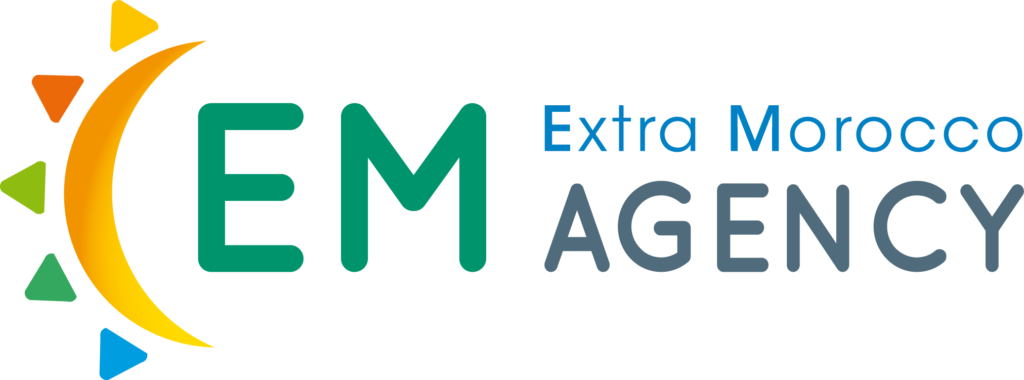
- Jewish Heritage
- Medinas & Cultural Heritage Immersion
Experience the wonders of Morocco with Extra Morocco Travel, where every journey is tailored to create unforgettable memories.
Contact us
Address : 7 Rue Franklin, Casablanca 20250, Morocco
Phone : +212 (0) 5 22 22 42 81
E-mail: [email protected]
© Copyright, EXTRA MOROCCO TRAVEL 2023

IMAGES
COMMENTS
Welcome to EXTRA MOROCCO TRAVEL, the leading travel agency in Morocco. We specialize in creating customized travel experiences in various segments, including MICE, corporate travel, leisure, luxury, spiritual journeys, and group travel. With our dedicated team of experts, we curate unforgettable itineraries tailored to your unique interests and desires.
Experience the wonders of Morocco with Extra Morocco Travel, where every journey is tailored to create unforgettable memories. Contact us. Address : 7 Rue Franklin, Casablanca 20250, Morocco. Phone : +212 (0) 5 22 22 42 81. E-mail: [email protected].
Experience the wonders of Morocco with Extra Morocco Travel, where every journey is tailored to create unforgettable memories. Contact us. Address : 7 Rue Franklin, Casablanca 20250, Morocco. Phone : +212 (0) 5 22 22 42 81. E-mail: [email protected].
1,360 Followers, 809 Following, 158 Posts - Extra Morocco Travel (@extramoroccotravel) on Instagram: "We are a Travel ️ and Event 🎆 agency that makes your dream come true ️ 🌐Email us now: [email protected] 📞 0522-224281".
Extra Morocco Travel is a Moroccan Touristic Travel agency based in Casablanca , Morocco .We are offering a variety and high quality services to our clients ( hotels booking, transportation, accommodations, restaurants...). we are a team of experts ready to accompany you in the organization of your projects, events and to make exceptional ...
Welcome to Extra Morocco Travel, A DMC travel agency specializing in the Jewish heritage in terms of spirituality, traditions, customs and culture. we are very happy with our formalization and...
Extra Morocco Travel, Casablanca, Morocco. 1,497 likes. Travel Company
Marrakesh is the most popular city in Morocco for visitors, so pre-book entrance tickets to major attractions such as Jardin Majorelle and Musée Yves Saint Laurent online to avoid waiting in line. The Marrakesh medina comes to life around 5 pm, but the "pink city" is more than just the medina - spend time exploring Gueliz and step off the main boulevards onto the leafy side streets to ...
Check out our full list of 7-day itineraries. If you have 10 days, you can do everything you'd do on the 7-day itinerary, but you'll have more time to explore the Sahara Desert, an extra day in Marrakech, and a side trip to the famed "Blue City" of Chefchaouen. Find more 10-day Morocco itineraries here.
Spend one extra day in this city if you are able to, and use this day to enjoy the nature of the Riff Mountains surrounding the city. ... Costs of Traveling in Morocco. Travel on a budget in Morocco, from $170 − $590 USD weekly per person, mid-range $720 − $1430 USD, and high-end from $1480 − $2320 USD. However, costs depend on factors ...
The summer months of July and August are usually the hottest and driest, with temperatures soaring into the triple digits. This can make sightseeing and outdoor activities difficult. Similarly, winter can be cold and wet in many parts of Morocco as well, making travel more difficult during this season.
Experience the wonders of Morocco with Extra Morocco Travel, where every journey is tailored to create unforgettable memories. Contact us. Address : 7 Rue Franklin, Casablanca 20250, Morocco. Phone : +212 (0) 5 22 22 42 81. E-mail: [email protected].
The Best Time to Travel to Morocco should be ideally the considered by season. One of the best times to visit Morocco is spring or fall. Spring (April and May) and Fall (September and October) are perhaps the best overall time to take a Morocco Tour. Morocco has over 300 days of sunshine.
Unlock the secrets of Morocco with these essential travel tips. From cultural etiquette to safety measures, make the most of your journey. ... Pedestrians should be extra cautious when walking in Moroccan cities and towns. Traffic can be chaotic, unpredictable, and fast, with cars, buses, and mopeds weaving in and out of traffic.
There are several ports of departure and arrival. The fastest ferry routes leaving from Spain are the Algeciras and Tarifa ports arriving in Tangier. They take 60-90 minutes. Barcelona Spain to Tangier Morocco takes about 28 to 36 hours. You can also take your car by ferry to Morocco.
All international travelers should be fully vaccinated against measles with the measles-mumps-rubella (MMR) vaccine, including an early dose for infants 6-11 months, according to CDC's measles vaccination recommendations for international travel. Dogs infected with rabies are commonly found in Morocco.
Adresse : Angle rue Franklin et Clos de Provence n°7 et 4 Quartier Gauthier. Ville : Casablanca. Présentation deEXTRA MOROCCO TRAVEL : agence d'organisation de voyages et d'excursions au Maroc. EXTRA MOROCCO TRAVELTél:522224281 Fax:522224136 [email protected]: 12P/11 LD: 7D/12.
Experience the wonders of Morocco with Extra Morocco Travel, where every journey is tailored to create unforgettable memories. Contact us. Address : 7 Rue Franklin, Casablanca 20250, Morocco. Phone : +212 (0) 5 22 22 42 81. E-mail: [email protected].
We are a Travel and Event agency that makes your dream come true [email protected] 📞 0522-224281. 165 Followers. Extra Morocco Travel (@extramoroccotravel) on Threads Home
Tailor-made. Themes. Meetings, Incentive, Conferences, Exhibitions; Corporate; Leisure; Luxury